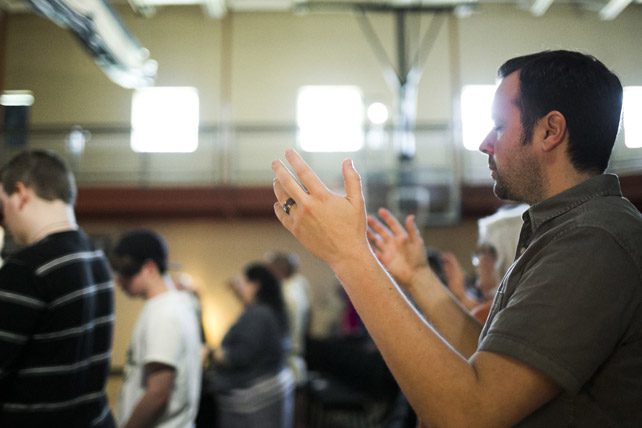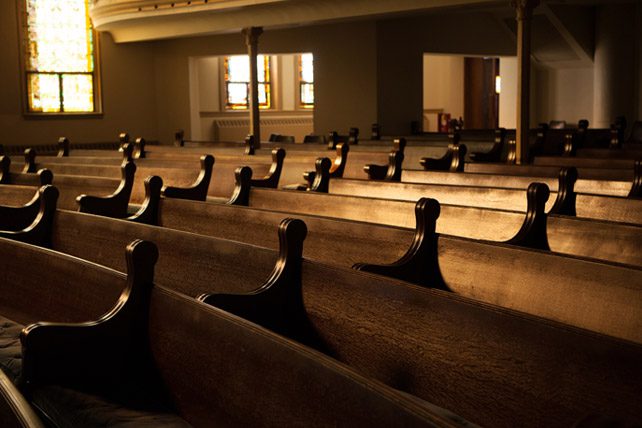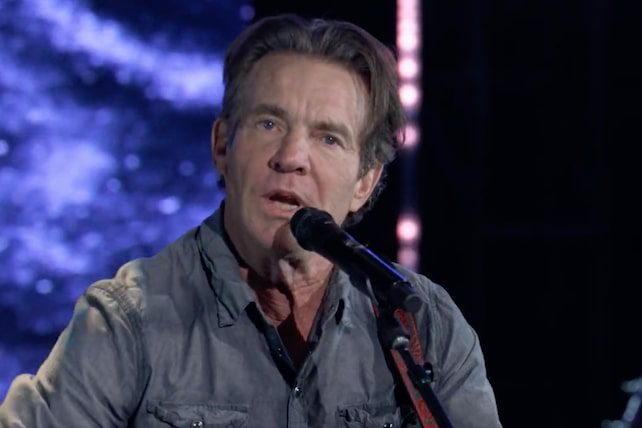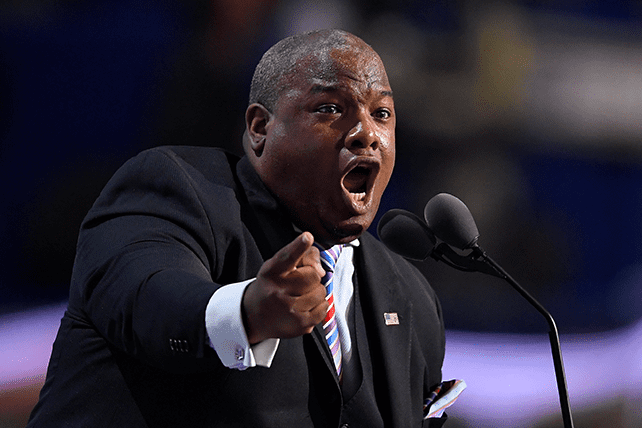This might be the most important principle for effective preaching I’ve learned. It led to my best sermons. Before I tell you the lesson, though, let me walk you through my process of discovery:
When I first began preaching, I took an entire manuscript on stage. It was a pastoral security blanket (except not pink and fuzzy). I tried not to read it directly, and in most cases, I was successful. But in my mind, it was good to know it was there, just in case I needed to snuggle.
Unfortunately, as I watched my messages the next day (it’s awkward, but you should do this if you don’t already!), I felt my preaching was lacking an important ingredient – CONNECTION. I was communicating all the content. I didn’t miss any stories, illustrations, points, or verses. But as I watched myself, I realized something significant that lead to my best sermon (over and over):
Great content without great connection is poor communication. You’ll never get to your best sermons without connection.
And that was my problem. I communicated clear content without any relational connection, and it wasn’t working. As I diagnosed my lack of connection, the problem became apparent:
I was more focused on WHAT I was saying than WHO was listening.
I was mentally focused on my place in the manuscript rather than on the people in the room. For me, the goal of preaching is not getting through an outline, but giving people a truth they can apply. Unfortunately, my manuscript tracking mentality was holding my focus hostage. For me to improve, the security blanket had to go!
One fateful Sunday morning, I did something huge – I walked on stage with my notes in my back pocket – and I was terrified. My little round table sat empty. It and I felt naked. It wasn’t my best message. It’s hard to preach terrified! But my connection to the crowd improved. The next week I left my notes in the green room. And I’ve never looked back. You know what? My connection keeps improving.
The principle is simple: I moved from being message-focused to people-focused. Sure, I still work hard on the content, but I moved my stage focus from the message to the people hearing the message. That is a game-changer that leads to your best sermons.
If your preaching lacks connection, I think you can improve by making this same shift. And if this idea is both intriguing and terrifying, here are a few secrets to preaching your best sermons I’ve picked up along the way:
6 Ways to Effective Preaching
1. Preach a Journey.
A great message takes an audience on a journey, beginning together at a point and traveling as a group to the final destination. I have found structuring my message like a journey helps me both remember the content and stay focused on the audience. A journey is simpler than an outline. Today, I only memorize exit points along the path instead of multiple paragraphs in a manuscript. This literally frees up mental energy to refocus on the audience.
2. Preach ONE Point.
There’s nothing biblical about preaching a three-point sermon, even if your seminary tried to convince you otherwise. If you’re lucky, people will remember only one thing you say anyway, so why fight your crowd’s natural instincts? Besides, one great point is better than three alliterated subpar points read from an outline. And one point is easier to communicate if it’s part of the message journey (see hint 1 below).
3. Preach to One Person in the Room.
This is the best advice I ever received on effective preaching. Before I write a message, internalize a message, or preach a message, I ask myself, “How would I say this in my office to a friend?” I know – not earth-shattering – but so helpful! Ask yourself this one question the next time you preach and see what happens to your message. If you want to connect with everyone, preach to just one.
4. Practice Your Sermons.
I typically rehearse a message 3 – 5 times – and I only stop practicing when I feel comfortable enough with the content that I can walk on stage with my target set on the congregation, not the next sentence in my outline. When I’m worried about what to say next, it becomes impossible to focus on the people listening. I thought taking notes on stage would help relieve my worry, but it only changed the problem. I now rehearse until I can deliver the content effortlessly. We call than internalizing the burden.
Anytime something looks effortless, you can guarantee that person spent hours and hours of effort to make it look that way.
One important caveat, though. Don’t memorize a manuscript unless you’re capable of communicating it without it sounding like a memorized manuscript. We’re trying to communicate with people, not at people.
5. Be You.
I don’t understand the preacher who has a “preaching voice” and a “normal voice.” If you don’t yell at people in normal conversation, stop yelling from the pulpit. Just be you up there. Be normal. How? Stop pretending to be someone else. That’s a good start because you will never fully connect if you aren’t you. I work for Andy Stanley, so when I preach, I stand in a GIANT preaching shadow. It’s so tempting to mimic a communicator like Andy, but mimicking Andy only takes away me. YOU cannot connect as someone else. Borrow what works, but be you.
6. For Your Best Sermons, Be transparent and Honest.
Few things are more connecting than honesty. We should be comfortable sharing our struggles (to a point, of course). We are real people, but pretending we’re not creates an obstacle to connection. People resonate and connect to other people, so be a real “people” on the stage.
I’m not a preaching expert. In fact, the more I learn, the more I realize I have a lot left to learn! But, one thing I know for sure:
If you can’t connect, you won’t develop effective preaching.
This article on effective preaching originally appeared here, and is used by permission.






 How can you increase trust across your local ministry leadership team so that you can serve more effectively together? In this week’s conversation on FrontStage BackStage, host Jason Daye is joined by Léonce Crump Jr., co-founder and senior pastor of Renovation Church in Atlanta. His latest book is titled “The Resilience Factor.” Together, Léonce and Jason discuss ways that you can learn how well your ministry leaders trust one another. Léonce also shares how you can build that trust and catalyze a resilient ministry team that’s ready to face together whatever challenges might arise.
How can you increase trust across your local ministry leadership team so that you can serve more effectively together? In this week’s conversation on FrontStage BackStage, host Jason Daye is joined by Léonce Crump Jr., co-founder and senior pastor of Renovation Church in Atlanta. His latest book is titled “The Resilience Factor.” Together, Léonce and Jason discuss ways that you can learn how well your ministry leaders trust one another. Léonce also shares how you can build that trust and catalyze a resilient ministry team that’s ready to face together whatever challenges might arise.
















